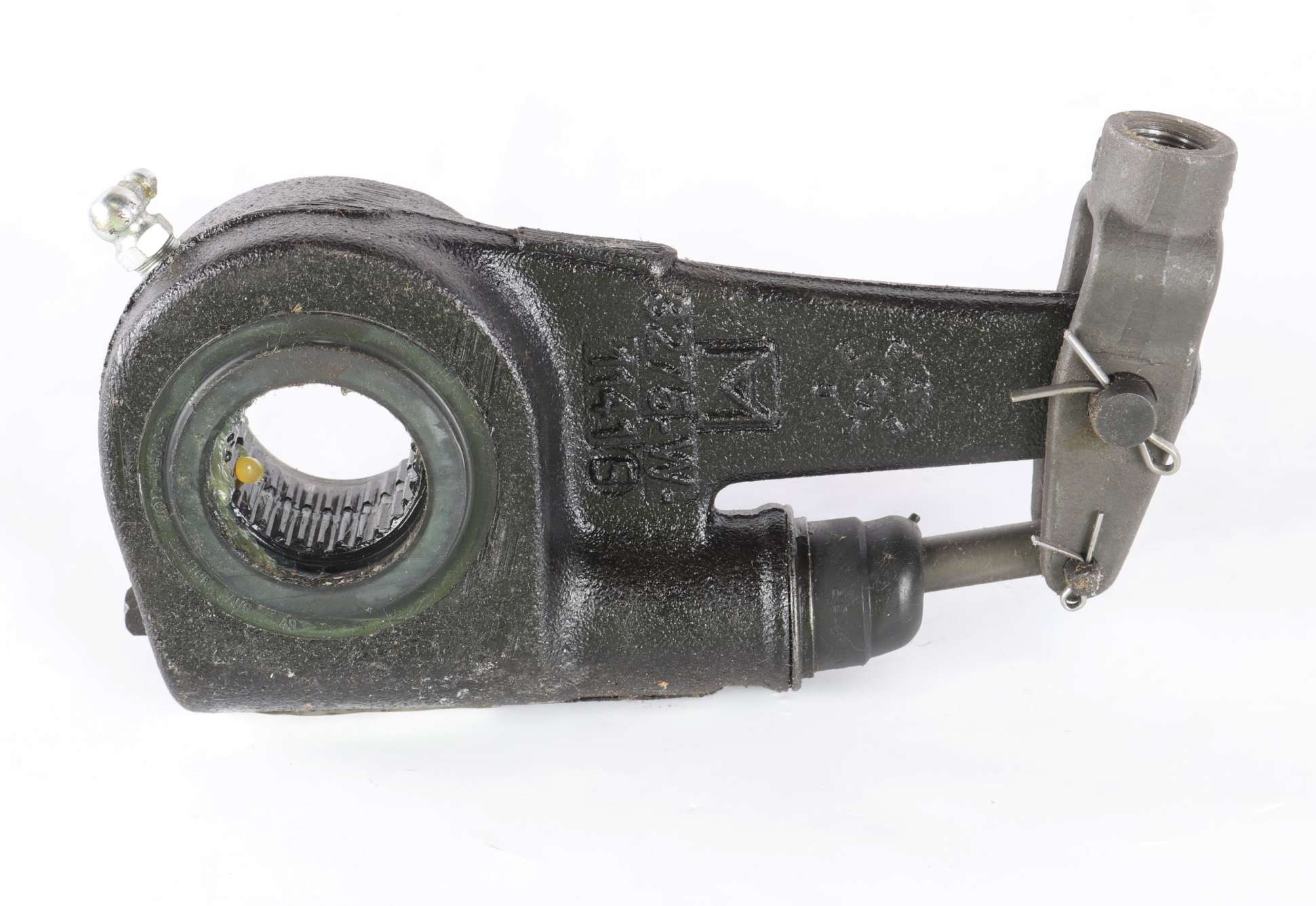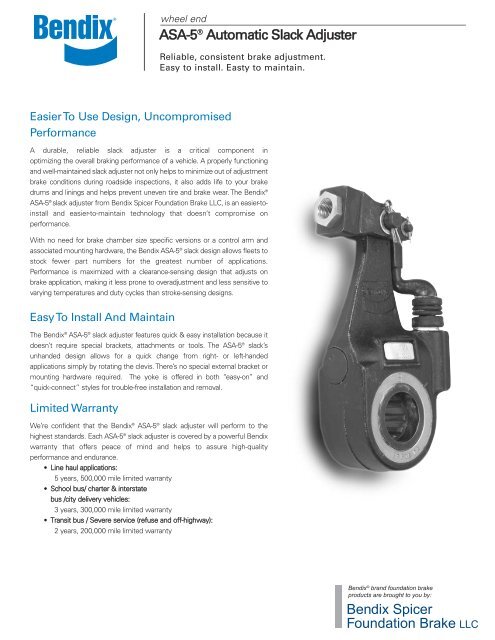
- HOW TO INSTALL SLACK ADJUSTERS DRIVERS
- HOW TO INSTALL SLACK ADJUSTERS MANUAL
- HOW TO INSTALL SLACK ADJUSTERS LICENSE
The survey showed that about 4.2% of power units and U.S.
HOW TO INSTALL SLACK ADJUSTERS MANUAL
Small numbers of older vehicles fitted with manual slack adjusters may still be operating well beyond 2020, though most of these will be in local use for limited travel. Overall, in 2001, almost 90% of all vehicle units (tractors, straight trucks, trailers and converter dollies) on the highway in Ontario were fitted with automatic slack adjusters. It is also possible that some carriers believe that the value of retrofit outweighs its cost.

Some may have been fitted as original equipment, because these devices have been available for at least 25 years. About 30% of older straight trucks, tractors and trailers that pre-date the requirement for automatic slack adjusters are nevertheless fitted with them. These older vehicles predominantly have manual slack adjusters. Thus, a larger proportion of the fleets of both straight trucks and trailers that pre-date the requirement for automatic slack adjusters are still on the highway than tractors. The fitment rate of automatic slack adjusters on straight trucks and trailers is lower than for tractors, because straight trucks and trailers tend to be kept in service longer than tractors. They were found on about 75% of all trailers in 2001. Fitment of automatic slack adjusters on Canadian trailers did not increase significantly until they were mandated in Canada in 1996. Automatic slack adjusters were found on about 85% of all straight trucks in 2001. This number will rise gradually as older vehicles equipped with manual slack adjusters disappear from service, and may reach about 98% by 2010. Automatic slack adjusters were found on about 93% of all tractors in 2001. Fitment of automatic slack adjusters on power units jumped to over 90% when the U.S.

The sample of vehicles for each of the three years appeared to be representative of traffic in Ontario. Vehicles were selected at random in all parts of Ontario.
HOW TO INSTALL SLACK ADJUSTERS DRIVERS
Operation Airbrake consists of three days of inspections in all provinces and some states, with the objective of focusing drivers and carriers on airbrake issues and gathering data to assess the state of airbrake adjustment. MTO graciously provided access to about 4,500 records collected from CVSA brake inspections during Operation Airbrake in 1999, 20.
HOW TO INSTALL SLACK ADJUSTERS LICENSE
NRC/CSTT identified that Ontario Ministry of Transportation (MTO) had detailed roadside inspection reports on large numbers of heavy trucks, which included vehicle type, number of axles, model year, license plate jurisdiction, brake chamber type, slack adjuster type and brake stroke. Transport Canada engaged the Centre for Surface Transportation Technology of the National Research Council of Canada (NRC/CSTT) to conduct this work.

Federal Motor Vehicle Safety Standard 121 was amended to require automatic slack adjusters, and a simple visual means of checking brake stroke, on vehicles built from 20 October 1994. A vehicle with some airbrakes out of adjustment may not have a consistent and reliable capability to stop, so a requirement for automatic slack adjusters was introduced to improve the reliability of airbrake stroke. CVSA inspections conducted at random over the last ten years or so have consistently resulted in 25 to 45% of all vehicles inspected being put out-of-service. Airbrake defects have been the principal reason for vehicles to be put out-of-service, and airbrake pushrod stroke in excess of the prescribed limit has been the principal airbrake defect. A vehicle may be put out-of-service if it has any of many specified defects defined by objective inspection criteria. Centre for Surface Transportation TechnologyĪll provinces and states across North America inspect heavy vehicles following standard procedures agreed under the auspices of the Commercial Vehicle Safety Alliance (CVSA).


 0 kommentar(er)
0 kommentar(er)
